Several CUHK-Shenzhen Professors Selected as Top 1000 Scientists for Computer Science and Electronics
Guide2Research, the world's leading portal for computer research, recently announced the 2021 Top Scientists Ranking for Computer Science & Electronics, featuring several professors from the School of Data Science (SDS), Shenzhen Institute of Artificial Intelligence and Robotics for Society (AIRS), and Shenzhen Research Institute of Big Data (SRIBD) of The Chinese University of Hong Kong, Shenzhen (CUHK-Shenzhen).
The University's professors shortlisted for this ranking include Prof. Tom Zhiquan Luo (Vice President of CUHK-Shenzhen, Director of Shenzhen Research Institute of Big Data, and Fellow to the Royal Society of Canada), Prof. Hongyuan Zha (Executive Dean of the School of Data Science, Vice President of AIRS, and Director or AIRS' Research Center on Generalized AI Applications), SDS Professor Dapeng David Zhang (Director of AIRS' Research Center on Computer Vision), Professor Shipeng Li (Executive President of AIRS and Director of its Research Center on Generalized AI Applications), SDS Professor Chris Hongqiang Ding, Prof. Takeo Kanade (Principle Investigator of AIRS international joint research projects and Senior Researcher of AIRS' Research Center on Computer Vision), and Prof. Bradley Nelson (Principle Investigator of AIRS international joint research projects).
Additionally, two overseas supervisors of AIRS' International Joint Postdoctoral Training Program, Prof. Xuemin Shen and Prof. Leandros Tassiulas, were also selected for the list. Notably, Prof. Dapeng Zhang, Prof. Takeo Kanade and Prof. Xuemin Shen are among the top 100 in the world.
The Guide2Research ranking identifies the top computer science and electronics scientists with high academic impact through multi-dimensional real data analysis, many of whom are machine learning masters, deep learning masters and Turing Award winners. The ranking represents h-index, DBLP and citations values gathered by May 10th 2021. The h-index captures research output based on the total number of publications and the total number of citations to those works, providing a focused snapshot of an individual’s research performance.
The ranking has also revealed significant growth in the number of top Asian scientists, with about 48% of the scientists on the list coming from China. The fact that many globally renowned scientists and young scholars have come to teach in the Guangdong-Hong Kong-Macao Bay Area and gathered at The Chinese University of Hong Kong, Shenzhen is also a testament to China's attractiveness to talents on the international stage and its increasing scientific and technological prowess as one of the frontiers of high-tech development.
For the complete list, please click on the link below:
About the Selected Scientists
Zhiquan (Tom) Luo
Vice President (Academic), CUHK-Shenzhen
Presidential Chair Professor
Director, Shenzhen Research Institute of Big Data
Fellow, Royal Society of Canada
Currently, Professor Zhi-Quan (Tom) Luo serves as the Vice President (Academic) of The Chinese University of Hong Kong, Shenzhen, and concurrently the Director of Shenzhen Research Institute of Big Data and also the Director of CUHK(SZ)-Tencent AI Lab Joint Laboratory on Machine Intelligence. Professor Luo is a Fellow of the Institute of Electrical and Electronics Engineers (IEEE) and a Fellow of the Society for Industrial and Applied Mathematics (SIAM). In 2014, he was elected to the Royal Society of Canada, the highest honor a Canadian scholar can achieve in the Arts, Humanities and Sciences.
Professor Luo obtained his BSc degree in Applied Mathematics from Peking University, China, in 1984. In the same year, he was selected by a joint AMS-SIAM committee and the Ministry of Education of China for graduate study in the United States (S.S. Chern Program). Following a 12-month intensive training in English and Mathematics, he enrolled in the Massachusetts Institute of Technology where he received a PhD degree in Operations Research in 1989. From 1989 to 2003, he was on the faculty in the Department of Electrical and Computer Engineering, McMaster University, Canada where he eventually served as the department head and was awarded a Canada Research Chair (Tier I) in Information Processing. He became the director of The Chinese University of Hong Kong (Shenzhen)-Shenzhen Research Institute of Big Data-Huawei Innovation Laboratory of Future Network System Optimization in 2020.
Professor Luo was awarded the 2010 Farkas Prize from the INFORMS Optimization Society for outstanding contributions to the field of optimization. In 2018, he received the prize of Paul Y. Tseng Memorial Lectureship in Continuous Optimization. He also received three Best Paper Awards from the IEEE Signal Processing Society in 2004, 2009 and 2011 respectively, and a 2011 Best Paper Award from the EURASIP. In 2021, he was awarded the 2020 ICCM Best Paper Award by International Consortium of Chinese Mathematicians. Professor Luo is a Fellow of the Institute of Electrical and Electronics Engineers (IEEE) and a Fellow of the Society for Industrial and Applied Mathematics (SIAM). In 2014, he was elected to the Royal Society of Canada, the highest honor a Canadian scholar can achieve in the Arts, Humanities and Sciences. In 2016, Professor Luo was elected to the Leading Talent Program of Guangdong Province.
Professor Luo’s research mainly addresses mathematical issues in information sciences, with a particular focus on the design, analysis and applications of optimization algorithms. Professor Luo consults regularly with industries on topics related to signal processing and digital communication. Professor Luo was the semi-plenary speaker for the International Symposium on Mathematical Programming in 2003 and IEEE CDC conference in 2011, the distinguished lecturer for the IEEE Sensor Array and Multichannel Signal Processing Workshop in 2006, the plenary speaker for the IEEE Signal Processing Advance for Wireless Communications (SPAWC) Workshop in 2013, and IEEE Signal Processing Theory and Methods Workshop in 2014. Professor Luo has served as the Chair of the IEEE Signal Processing Society Technical Committee on Signal Processing for Communications (SPCOM). He was the Editor in Chief for IEEE Transactions on Signal Processing from 2012 to 2014 and served as the Associate Editor for many internationally recognized journals, including Mathematics of Operations Research, Management Science, Mathematical Programming and others. In addition to teaching and research, Professor Luo has been providing technical advice to domestic and foreign high-tech enterprises as well as government research institutions.
Hongyuan Zha
Presidential Chair Professor, CUHK-Shenzhen
Executive Dean, School of Data Science
Vice President, Artificial Intelligence and Robotics for Society
Prof. Hongyuan Zha is the Presidential Chair Professor of The Chinese University of Hong Kong, Shenzhen, the Executive Dean of the School of Data Science, and the Vice President of Shenzhen Institute of Artificial Intelligence and Robotics for Society (AIRS).
Prof. Hongyuan Zha received his B.S. degree in Mathematics from Fudan University in 1984, and his Ph.D. in Scientific Computing from Stanford University in 1993. He was a faculty member of the College of Computing at Georgia Institute of Technology from 2006 to 2020, and the Department of Computer Science and Engineering at Pennsylvania State University from 1992 to 2006. He also worked at Inktomi Corporation from 1999 to 2001. His current research interest lies in machine learning and its applications.
Professor Zha has published over 300 papers in top journals and conferences in computer science and other related fields. According to Google Scholar, as of April 2021, he has been cited for over 25,100 times and his H-index is 79. Besides, he has won many prominent academic awards including Leslie Fox Prize (second prize,1991) awarded by the Institute of Mathematics and Applications (IMA), the 34th International ACM SIGIR Conference on Research and Development in Information Retrieval (SIGIR 2011) Best Student Paper Award (as advising Professor), the 26th NeurIPS Outstanding Paper Award (2013).
Dapeng (David) Zhang
Presidential Chair Professor, CUHK-Shenzhen
Professor, School of Data Science
Director, Research Center on Computer Vision, Artificial Intelligence and Robotics for Society
Fellow, Royal Society of Canada
Prof. Dapeng (David) Zhang is the Presidential Chair Professor at CUHK-Shenzhen and the Director of Research Center on Computer Vision, Artificial Intelligence and Robotics for Society (AIRS). He is both Founder and Editor-in-Chief, International Journal of Image & Graphics (IJIG). Over the past 30 years, he has been working on pattern recognition, image processing and biometrics, including palmprint recognition, computerized TCM and facial beauty analysis.
Prof. Zhang’s research results have won many awards, such as the Gold Medal and Special Gold Medal for Invention awarded by China and Korea, the Silver Medal at International Exhibition of Inventions of Geneva, and the recognition of Croucher Senior Research Fellow, the highest science and technology honor of the Hong Kong Special Administrative Region. So far, he has published over 20 monographs, 400 international journal papers and 40 patents from USA/Japan/China. He has been continuously listed as a Highly Cited Researchers in Engineering by Clarivate Analytics (formerly known as Thomson Reuters) for 7 consecutive years (2014-2020).
Shipeng Li
Executive President, AIRS
Professor (Adjunct), School of Data Science
Academician, IEAS
Hongqiang (Chris) Ding
Presidential Chair Professor
Professor, School of Data Science
Professor Chris Hongqiang Ding is currently the Presidential Chair Professor at the School of Data Science, CUHK-Shenzhen. Prior to that, Professor Ding held positions at the California Institute of Technology, the University of California, Lawrence Berkeley National Laboratory, and the University of Texas, Arlington. Professor Ding was selected into the CUSPEA program and went to Columbia University for further study and obtained his Ph.D. in theoretical physics and computer science (G2R Ranking).
Professor Ding's research interests include machine learning/data mining, bioinformatics, information retrieval, and web link analysis. He and his collaborators’ work on multi-class protein fold prediction is now a standard benchmark for protein 3D structure prediction. Professor Ding and his team discovered that Principal Component Analysis (PCA) provides the solution to K-means clustering. They also proved that nonnegative matrix factorization is equivalent to K-means /spectral clustering. Professor Ding and his co-researcher generalized PCA to 2D Singular Value Decomposition for dimension reduction of a set of 2D matrices. Their MPH technology/software for integrating multi-component executables on distributed memory architectures are adopted in many state-of-art large scale models for predicting the long-term climate. Professor Ding also developed the vacancy tracking algorithm for provably optimal in-place multi-dimensional array index reshuffle.
Professor Ding previously worked at California Institute of Technology on Caltech Hypercubes developing parallel algorithms for Materials Science and Computational Biology; at NASA's Jet Propulsion Laboratory on developing algorithms for climate data assimilation, sparse matrix linear solvers and parallel graph partitioning; at the Lawrence Berkeley National Laboratory, working on high performance computing, algorithmic R&D for climate models, application benchmarking, giving tutorials on HPF, MPI, etc., and exploring new frontiers, the magic of matrix for clustering, ordering, ranking, embedding, bipartite graphs for systemic representation of proteins interaction networks, motifs, domains, complexes, functional modules, pathways.
Besides, Professor Ding has won four Best Paper Awards for climate data assimilation parallel algorithm and supernova detection using support vector machines, a NASA Group Achievement Award at JPL, and two Outstanding Performance Awards at Lawrence Berkeley National Laboratory. He served in review panels for US National Science Foundation, and as reviewer for research proposals of National Science Foundations of Ireland, Israel, and Research Grants Council of Hong Kong. He also served for Bioinformatics journal, and program committees of leading conferences in data mining, machine learning and bioinformatics. He co-organizes annual workshops on data mining using matrices and tensors. His work was reported by Science (PDF), Nature (PDF), SIAM, and National Research Council Report.
Takeo Kanade
Principle Investigator of AIRS international joint research projects
Foreign Member of US National Academy of Engineering
Takeo Kanade, the U.A. and Helen Whitaker University Professor of Robotics and Computer Science at Carnegie Mellon University, received the prestigious 2016 Kyoto Prize for Advanced Technology, Nov. 10, 2016 in Kyoto, Japan.
The international award is presented by the Inamori Foundation to individuals such as Kanade who have contributed significantly to the scientific, cultural and spiritual betterment of humankind. Kanade’s prize recognizes his pioneering contributions to computer vision and robotics.
Dr. Kanade is the U. A. and Helen Whitaker University Professor of Computer Science and Robotics and the director of Quality of Life Technology Engineering Research Center at Carnegie Mellon University. He received his Doctoral degree in Electrical Engineering from Kyoto University, Japan, in 1974. After holding a faculty position in the Department of Information Science, Kyoto University, he joined Carnegie Mellon University in 1980. He was the Director of the Robotics Institute from 1992 to 2001. He also founded the Digital Human Research Center in Tokyo and served as founding director.
Dr. Kanade works in multiple areas of robotics: computer vision, multi-media, manipulators, autonomous mobile robots, medical robotics and sensors. He has written more than 400 technical papers and reports in these areas, and holds more than 20 patents. He has been the principal investigator of more than a dozen major vision and robotics projects at Carnegie Mellon.
Dr. Kanade’s other professional honors include: election to the National Academy of Engineering, the American Academy of Arts and Sciences, a Fellow of IEEE, a Fellow of ACM, and a Fellow of American Association of Artificial Intelligence; several awards including Kyoto Prize, the Benjamin Franklin Institute Medal and Bower Prize, C&C Award, Okawa Award, ACM/AAAI Allen Newell Award, Joseph Engelberger Award, IEEE Robotics and Automation Society Pioneer Award, and ICCV Azriel Rosenfeld Lifetime Accomplishment Award.
Bradley Nelson
Principle Investigator of AIRS international joint research projects
Professor, ETH Zurich
Brad Nelson received his PhD degree in Robotics at the Carnegie Mellon University, and has been the Professor of Robotics and Intelligent Systems at ETH Zürich since 2002, where his research focuses on microrobotics and nanorobotics. Fundamentally, he is interested in how to make tiny intelligent machines that are millimeters to nanometers in size.
He studied mechanical engineering at the University of Illinois and the University of Minnesota, worked as a computer vision researcher at Honeywell and a software engineer at Motorola, served as a United States Peace Corps Volunteer in Botswana, Africa, and then obtained a Ph.D. in Robotics from Carnegie Mellon University. He was an Assistant Professor at the University of Illinois at Chicago and an Associate Professor at the University of Minnesota before moving to ETH.
Prof. Nelson has over thirty years of experience in the field of robotics and has received a number of awards for his work in robotics, nanotechnology, and biomedicine. He was named to the "Scientific American 50", Scientific American magazine's annual list recognizing fifty outstanding acts of leadership in science and technology. His lab is the undefeated international champion in Robocup's Nanogram Soccer League, and he is in the Guinness Book of World Records for the "Most Advanced Mini Robot for Medical Use." His research group has won more than a dozen best paper awards at various international conferences and in international journals.
Prof. Nelson serves on the advisory boards of a number of academic departments and research institutes across North America, Europe, and Asia and is on the editorial boards of several academic journals. He has been the Department Head of Mechanical and Process Engineering at ETH, Chairman of the ETH Electron Microscopy Center, and is a member of the Research Council of the Swiss National Science Foundation. He is also a member of the board of directors of three Swiss companies.
Xuemin Shen
Overseas supervisor, International Joint Postdoctoral Training Program, AIRS
Professor, University of Waterloo
Fellow, Royal Society of Canada
Foreign Academician, Chinese Academy of Engineering
Professor Xuemin Shen is a professor at the Department of Electrical and Computer Engineering, University of Waterloo, and fellow of IEEE, Engineering Institute of Canada, Canadian Academy of Engineering, and Royal Society of Canada. Currently, he serves as Vice President of the IEEE Communications Society.
Professor Shen received his BASc at Dalian Maritime University, China, and his MASc and PhD at Rutgers University, USA.
Prof. Shen is an internationally renowned scholar in the field of communication networks and has long been dedicated to the research of wireless communication networks, especially the key technologies of Telematics. He has innovated the theory and technology of Telematics medium access, broken through the key technology of Telematics security and privacy protection, and led and promoted the development of Telematics technology and industrial application. He has authored 27 monographs and published more than 600 papers in academic journals, and won 44 best paper awards in international authoritative journals and top conferences. He is a Highly Cited Researcher by the Web of Science Group, and one of the most highly cited authors in Google Scholar in wireless communication networks (over 52,000 citations, H-index 111).
For his pioneering work in the field of Telematics, he was awarded the James Evans Avant Garde Award, the R.A. Fessenden Award and many others by the IEEE Vehicular Technology Society, IEEE Canada, and the IEEE Wireless Communications Technical Committee.
Prof. Shen was elected as a foreign member of the Chinese Academy of Engineering in 2019. He has served as a member of the supreme executive committee of IEEE Communications Society and Chairman of the IEEE Wireless Communications Committee. In addition, Prof. Shen has served as conference chairs, field chairs and technical committee chairs of top international conferences such as ACM Mobihoc, IEEE Infocom, and editors-in-chief of many international authoritative journals such as IEEE, IET, and Springer.
Leandros Tassiulas
Overseas supervisor, International Joint Postdoctoral Training Program, AIRS
Professor, Yale University
Prof. Leandros Tassiulas’ research interests are in the field of computer and communication networks with emphasis on fundamental mathematical models and algorithms of complex networks, architectures and protocols of wireless systems, sensor networks, novel internet architectures and experimental platforms for network research.
His most notable contributions include the max-weight scheduling algorithm and the back-pressure network control policy, opportunistic scheduling in wireless, the maximum lifetime approach for wireless network energy management, and the consideration of joint access control and antenna transmission management in multiple antenna wireless systems.





